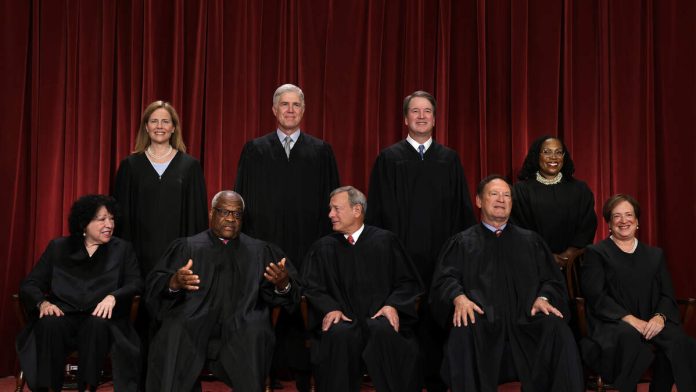The U.S. Supreme Court, in a 6-3 decision on Friday (June 27), limited the ability of federal courts to issue nationwide injunctions. This ruling came in response to a request from the Trump administration concerning an executive order on birthright citizenship. The court’s conservative majority stated that “universal injunctions likely exceed the equitable authority that Congress has given to federal courts.” The decision allows injunctions only to the extent necessary to provide relief to plaintiffs with standing to sue.
The case centered on President Donald Trump‘s executive order, issued on his first day in office this year, which declared that children born in the U.S. to parents who entered illegally or on temporary visas are not entitled to automatic citizenship. This order faced legal challenges from immigrant rights groups and 22 states. Three federal district court judges had previously issued universal injunctions to prevent the enforcement of the order nationwide.
The Supreme Court’s decision is expected to have significant implications for how lower courts handle similar cases in the future. By restricting the scope of injunctions, the ruling may limit the ability of individual judges to block federal policies across the entire country.

Recent Comments